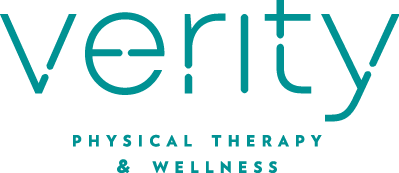Have you ever wondered if there was a way to reduce your risk of experiencing a perineal tear during vaginal delivery? Well, there are things you can do proactively to try to prevent tearing but the jury is still out on whether it actually helps. Just like how the jury is still out on whether the type of stretching (active vs. static) and stretching pre- or post-activity will actually help prevent injury in sports, the research is limited and somewhat inconclusive as to what you can do to help prevent perineal tears during vaginal delivery. So let’s talk about it!
First off, let me explain some basics:
Spontaneous tears during vaginal delivery happen in 44-79% of women (Soong and Barnes 2005; Dahlen, Homer et. al. 2007) and the tears can range from a 1st degree tear (tearing only of the perineal skin) to a 4th degree tear (perineal skin, muscles, anal sphincter and surrounding tissues). 4th degree tears happen in in 0.25%-2.5% of spontaneous vaginal births (Byrd, Hobbiss et. al.2005; Groutz, Hasson et. al. 2011).
What does the research say?
In 2006 Beckmann and Garret combined the results from four high quality research studies done on perineal massage and its effectiveness. They found that women who were assigned to do perineal massage had a 10% decrease in their relative risk for perineal tears (relative risk - the number that tells you how much doing something you do, such as maintaining a healthy weight, can change your risk compared to your risk if you’re very overweight). So, if your absolute risk for experiencing a spontaneous perineal tear during vaginal delivery is 35% and you do a perineal massage as prescribed to decrease your relative risk by 10% then you will have decreased your absolute risk for experiencing a spontaneous perineal tear from 35% to 31.5% (0.35x0.1=0.0315). These findings are for first-time moms only.
Other findings:
Second-time moms who had delivered their first child vaginally did not have a decrease in perineal trauma (any tearing that requires stitches) whether they followed a perineal massage protocol during pregnancy or not.
Second-time moms who followed a perineal massage protocol did report a 32% decrease in the risk of ongoing perineal pain at three months postpartum.
Perineal massage during pregnancy decreased the overall risk of perineal trauma (any tearing that requires stitches so this includes non-spontaneous tears such as an episiotomy) but the research is too weak to see if there are any differences in outcomes of types of tears (1st-4th degrees)
To massage or not massage?
As long as you are not massaging and stretching into pain then I say go for it! As a pelvic floor specialized physical therapist with a background in sports and orthopedics, I tell patients who ask about stretching before running or other athletic events that the research is inconclusive so as long as it feels good to you and you are not stretching/massaging into pain then they should do it. I take the same approach with my pregnant mommas. If you feel comfortable doing it and you are not causing pain then go ahead. Will you not experience a perineal tear during vaginal delivery if you do perineal massage? The research says that it does not make much of a difference. However, it can’t hurt (as long as you are listening to your body and not pushing into pain) so why not right?
My biggest piece of advice I give to expecting mommas who want to be proactive with their musculoskeletal health is to pay a visit to a pelvic floor physical therapist in the 2nd trimester. You will learn how to correctly contract and relax your pelvic floor muscles, how to do a self perineal massage, and other stretches and exercises that will set you up for a speedier and healthier recovery postpartum. The research DOES show that pelvic floor physical therapy during pregnancy improves women’s outcomes postpartum!
Have questions? Don’t hesitate to contact me! I love helping women navigate the beautiful waters of pregnancy and postpartum life! There are resources out there (me!) for expecting and postpartum mommas so why not use them?!
carolyn@verityptw.com
615.604.5367


